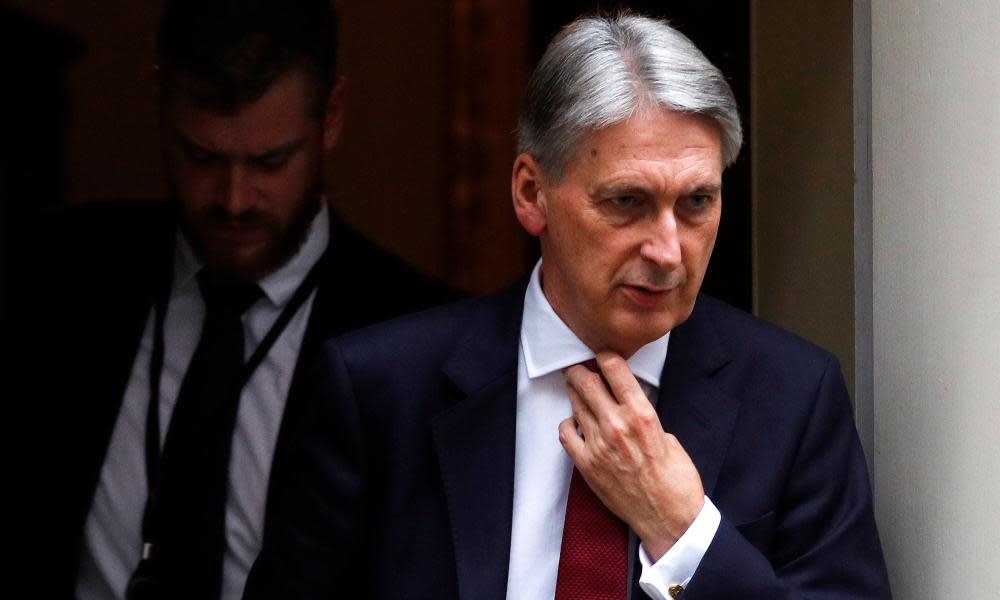Accountancy body urges chancellor to end austerity in budget

Ditching the government’s budget plans and adopting Labour’s tax and spending proposals would allow Philip Hammond to ditch austerity and pencil in an extra £100bn of spending by the middle of the next decade, according to a leftwing thinktank.
In a report to be published later this week, the Fabian Society said there was no clear case for the chancellor to stick to his plan of running a surplus and that the emphasis should be on investment that would improve the economy’s growth rate.
The report – the result of a joint project between the thinktank and the Institute of Chartered Accountants in England and Wales (ICAEW) said public spending needed to rise by at least four percentage points over the coming years, putting expenditure in the UK in the middle of advanced countries.
Hammond plans to let spending fall as a percentage of national output until the mid-2020s, necessitating further cuts in spending by Whitehall departments and on welfare.
But the Fabian report said Labour’s plans only required the Treasury to balance the budget for day-to-day public spending over a five-year cycle, making it possible to borrow for investment. The improvement in the public finances meant that the deficit on current spending had already been eliminated, making it possible to make good on Theresa May’s pledge at this year’s Conservative conference to end austerity.
Hammond has said that running an overall budget surplus will allow the government to bring down national debt as a share of gross domestic product and leave the public finances in a better position to cope with future economic problems. The UK’s debt to GDP ratio has more than doubled since the start of the financial crisis in 2007.
The Fabian report said there was no “clear case” for continuing to aim for an overall surplus and urged Hammond to adopt rules closer to those of his Labour shadow, John McDonnell.
Adopting Labour’s rules for borrowing would provide £54bn extra for public spending by 2025-6, while the increases in personal and corporate taxes would generate an additional £48bn, taking the total to £102bn by the middle of the next decade.
Andrew Harrop, the general secretary of the Fabian Society, said: “This report argues for fiscal policy very different from anything we can expect from the chancellor in next week’s budget.
“Ministers should be able to borrow to invest and taxes should rise significantly in response to acute spending pressures. Fiscal rules should also be reformed, so they are no longer biased against public ownership or government delivery when these policies have a sound economic case.”
The report said future ministers should look into geographic variations that resulted in spending per head being almost 50% higher in London than in the east Midlands. It urged devolution of spending and making taxes more progressive to redistribute money around the UK.
“This is a radical agenda and much of it will probably have to wait for a Labour government. But the chancellor can make a start next week by adopting fiscal rules similar to those proposed by Labour,” Harrop said.

 Yahoo News
Yahoo News 
